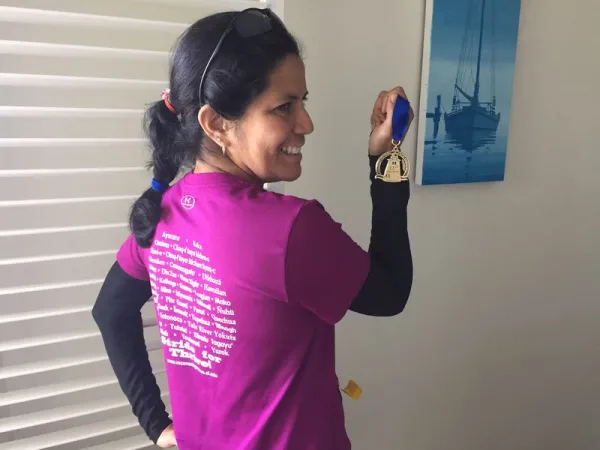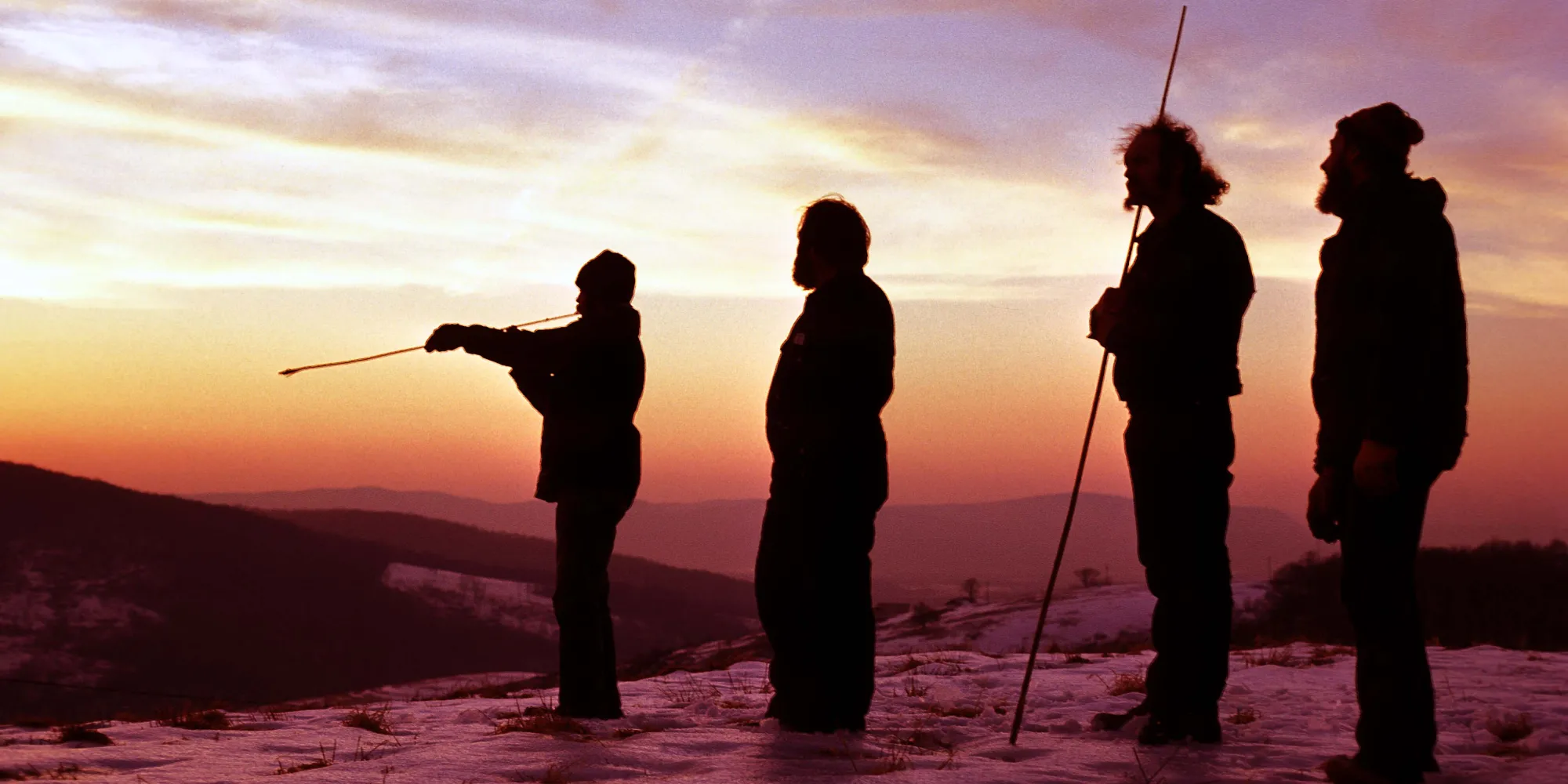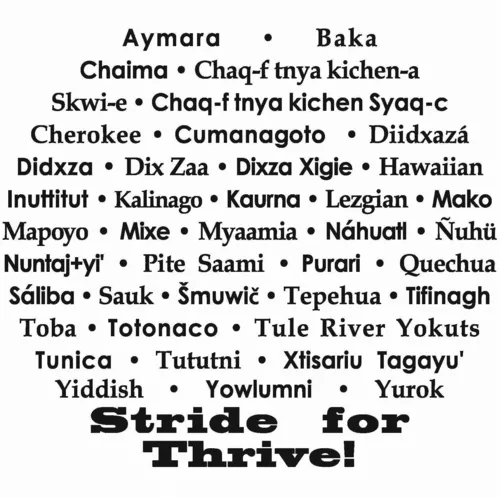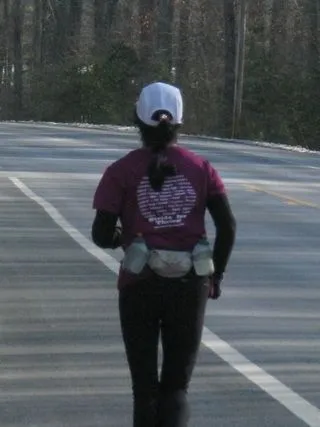
Search

News from Recovering Voices
Stride for Thrive Update: Stepping towards Language Reclamation & Revitalization
By: Laura Sharp & Gabriela Pérez Báez
03/12/2015

After months of training, hundreds of miles under foot, and with 40+ language names printed on the back of her ‘Stride for Thrive’ shirt, Gabriela Pérez Báez completed her third marathon run in honor of International Mother Tongue Day (February 21). This run was a tribute to the endurance and diligent efforts demonstrated by numerous tribes, individuals, groups, and communities across the world who are working towards reclaiming or revitalizing their native languages. The languages included on the Stride for Thrive shirt seen below are thanks to those of you who submitted your reclaimed and revitalized languages on the Recovering Voices Facebook Page; you made this event possible!
While Stride for Thrive was a one-time event, the motivation behind it speaks to a much larger issue worldwide: the threat to language and knowledge diversity. The Recovering Voices initiative at the National Museum of Natural History was established as a response to the global crisis of language endangerment with nearly half of the worlds 7,000 or so languages projected to vanish by 2100. Recovering Voices aims to address “…issues of indigenous language and knowledge diversity and sustainability at the national and global level”. Recovering Voices is actively doing this through annual Community Research grants, the National Breath of Life Archival Institute for Indigenous Languages and several community based research projects. Most importantly, this work is done in direct collaboration with communities and several invaluable partners.

Over the last 4 years, Recovering Voices has hosted more than 6 Community Research Visits. This year, 3 are planned. Community groups have included the Bella Bella and Bella Coola, Barbareño Chumash, Kiowa, Huna, Samoan, and the Great Lakes Research Alliance for the Study of Aboriginal Arts and Cultures (GRASAC). These visits involve intimate, meaningful encounters with material culture and archives of the museum's collections at the NMNH Museum Support Center and the National Anthropological Archives (NAA). Community members spend several days consulting with various objects from the collections that are of particular significance to their culture, knowledge, language and identity. The Community Research grants program at Recovering Voices is currently accepting applications until April 10, 2015.

The National Breath of Life Archival Institute for Indigenous Language is another major initiative to which Recovering Voices is committed. Breath of Life facilitates the process of language revitalization and reclamation by enabling access to language documentation. This biennial event will be co-hosted by Recovering Voices, the National Museum of the American Indian and the Library of Congress and this year will be held from June 1-12, 2015 in partnership with the Myaamia Center. This year, representatives from 16 language groups will work with linguists to become familiar with basic linguistics principles and with the archival documentation on their languages.
Recovering Voices also leads several community based research projects around the globe. These include the Environment, Heritage and Knowledge Systems in Papua New Guniea, the Hopi Pottery Oral Tradition Project, the Multi-sited, multi-faceted research on Zapotec languages in addition to other projects in Alaska and the Meskwaki and the Sauk communities in Iowa and Oklahoma. In each of these projects, the community is at the core of the work as valuable research partners and collaborators. Whether the research is focused on documentation, reclamation, knowledge acquisition or material culture, each research project is focused on responding to the crisis of knowledge and language loss in some capacity.

Within each area of Recovering Voices there is a central thread and commitment to helping preserve, document or revive knowledge and linguistic diversity. Although we all can’t run a marathon to honor this cause, Recovering Voices seeks to work collaboratively and creatively to continue to address the linguistic challenges facing the world today.